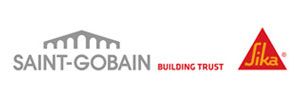 Saint-Gobain’s planned takeover of Sika faces new challenges as opposition to the deal mounts.
Saint-Gobain’s planned takeover of Sika faces new challenges as opposition to the deal mounts.
Investors who together hold over 40% of Sika’s share capital have expressly stated their support for the company’s Board of directors and group management.
Further support from over 20 pension funds from companies in Switzerland – home to the Sika Group – as well as cities and public institutions has been added to the growing movement to block Saint-Gobain’s efforts to buy the company’s controlling stake from the Burkard family, who own Sika.
Vigorous efforts have been made by Sika’s upper management to stop the deal since it was announced in December when Saint-Gobain signed a ?2.3bn deal for the Burkards’ stake in majority shareholder Schenker Winkler Holding (SWH), of which the Sika Group’s management board was unaware.
Since this time, Sika’s board of directors has restricted the Burkards’ previous voting rights of 52.4% to just 5%, and removed the family’s power to convene extraordinary general meetings. The Board says this is possible as its articles of association provide for registered shareholders not to hold more than 5% of all registered shares. Only the Burkard family and SWH have always been exempted from this rule owing to the family’s close association with Sika, which stretches back more than a century, and its repeated public assertions of its intention to retain this close association and to protect the company against takeovers.
Sika’s board claims that the Burkard family / SWH has now formed a shareholder group with Saint-Gobain, resulting in the loss of its historical privilege.
This decision has been supported by a legal opinion authored by Prof. Dr. Peter Nobel that said:
“The Burkard family and Saint-Gobain form a shareholder group. Because of the de-facto transfer of voting rights to Saint-Gobain the family must lose its historical voting rights privilege. Furthermore, in the light of these circumstances, Schenker-Winkler Holding is not legitimately entitled to demand an extraordinary General Meeting.”
However, Saint-Gobain – based in Paris – has released a statement claiming that it has been
“advised by its legal counsel that these actions are clearly against all corporate law and governance principles in Switzerland.”
Discussions between the two European companies have been fraught throughout the negotiation period. The last publicised meeting between the two took place on January 16 2015, which Sika claims it entered in good faith. However, the Swiss company says Saint-Gobain continued to ignore its concerns over the sale, which were
“not taken seriously.”
Saint-Gobain claims that under the deal, Sika would continue to develop under the same conditions as those that have
“underpinned its success”, and that it has no interest in making an offer for Sika’s remaining shares or reducing it’s portfolio.
The French company continues to claim that the deal would benefit both groups, saying that
“it has become abundantly apparent from the analyses made both by Sika and by Saint-Gobain’s management that the tie-up between the two companies will generate annual synergies”.
However, Sika released a statement in response saying: ”
We distance ourselves from any claim made b




